Of all the many lessons that 2020 has taught us, possibly the most critical one is how to wash your hands. There is no way you could have lived through 2020 without understanding the importance of basic hygiene and transmission of viruses and COVID-19 will make sure we never forget.
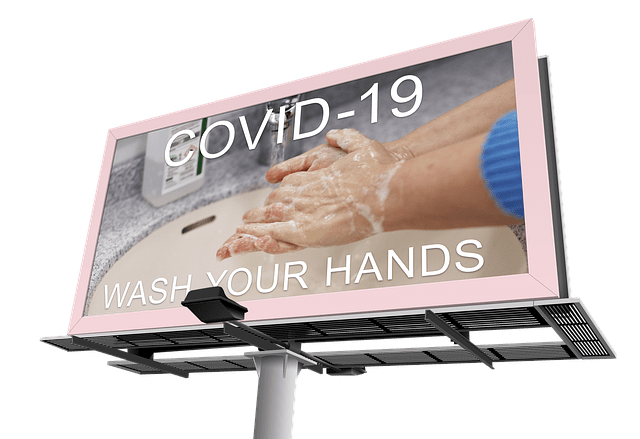
Hand washing is our first and primary form of defence against all forms of disease-causing microorganisms and knowing how to wash hands (and doing so frequently) could make all the difference between you being healthy or catching the flu.
Hand washing is of paramount importance in medical settings to prevent infections from spreading rapidly among individuals. Every doctor and medical worker knows how to wash hands properly and is comfortable using running water, gels or foams. But you don’t need medical training to learn how to wash your hands and access one of the best forms of protection against viruses.
What is the right way to wash hands?
When it comes to learning how to wash your hands, the first thing to know is that warm water and soap are all you need to keep hands clean and disinfected. To wash your hands:
- Take off all jewellery including rings.
- Hold your hands under running water. It is best if it is warm water but not necessary.
- Use soap (liquid soap is best) and rub into a lather for at least 20 seconds.
- Pay particular attention to the backs of your hands and fingers, nails, fingertips and the space between fingers.
- Rinse off lather completely until the water runs clear.
- Use a paper towel to turn the tap off.
- Dry out your hands thoroughly with a paper towel, hand towel or air dryer.
The importance of knowing how to wash your hands
Knowing how to wash your hands is vital because it is the first step in the prevention of spread of infectious diseases. This is true at all times and not just during COVID times. If your hands are contaminated, you’ll spread the germs to yourself, your close family and friends, your clothes and personal belongings, and in your home.
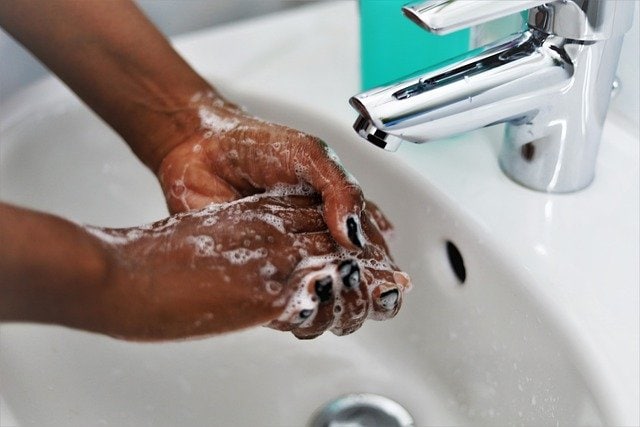
Besides you, your children must be aware of how to wash hands as well. Children are prone to catching bugs or viruses and can experience more severe symptoms than adults but washing their hands can prevent the spread of germs. Teach them how to wash hands properly so that they will use the right method at school, when eating meals with friends, or if they use toilets in public places.
Learn how to keep your hands clean at all times
Besides knowing how to wash your hands you should also follow some steps to keep your hands clean at all times.
- Make sure you have a small bottle of hand sanitizer with you at all times. Use it frequently if you’re in public spaces or using public transport.
- If you’re looking after someone who is ill, use disposable gloves when cleaning up used tissues or crockery.
- Encourage your family (especially children) to wash hands effectively and frequently.
- If you sneeze, cough, or yawn, make sure you use tissue or your elbow instead of your hands.
- Hang cloth towels to dry after every use and launder them as frequently as possible
- Visibly contaminated hands should always be cleaned with soap and water. If your hands are not visibly contaminated, you may use alcohol-based rubs or wipes.
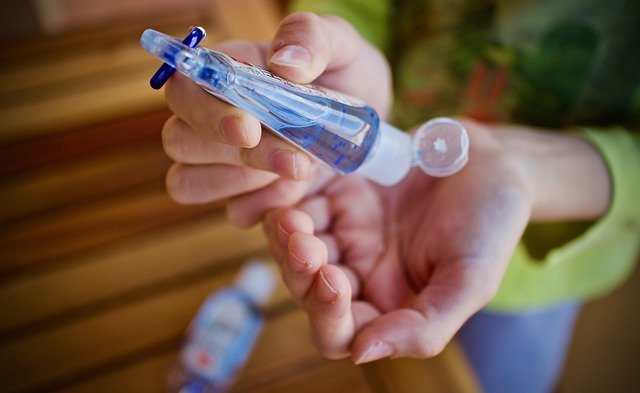
Maintaining hand hygiene during illness or good health
Being in good health is no excuse for not practicing proper hand hygiene, especially during flu season or pandemic times. You never know when you might come into contact with infected items or individuals, so it is best to take precautions and keep your hands clean. In addition, if you are asymptomatic, you may be putting your loved ones at risk by not knowing how to wash your hands.
Inculcate these practices during a pandemic or flu season:
- Increase the frequency of handwashing using soap and water whenever possible
- Make use of alcohol-based rubs when soap and water is inaccessible
- Disinfect all personal objects that you use often, especially mobile phones, wallets, cards and keys
- At work, clean all surfaces that are frequently touched: doorknobs, desks, your keyboard, etc.
- Avoid touching your face and hair
- If you have long hair, keep it tied up so you are not touching it often
If you are ill, whether it is with a virus or a common cold, you should take more precautions than before. Hand hygiene is very important for preventing the spread of illnesses and keeping your loved ones safe.
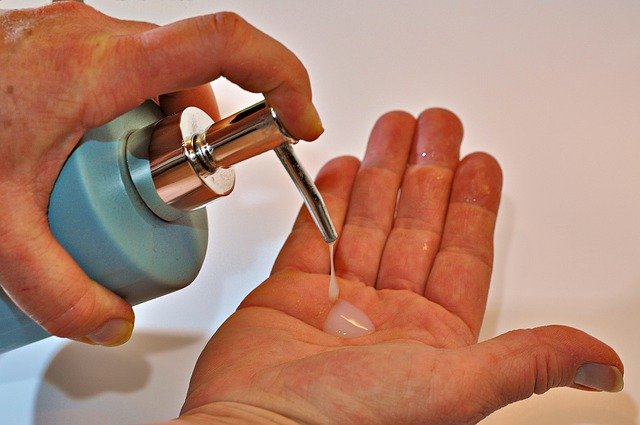
If you have been asked to stay in quarantine for two weeks, knowing the right way to wash your hands is critical to prevent the spread of possible infection.
Begin with the following tips:
- Wash your hands frequently even if you’re at home
- Avoid touching your face and hair
- If possible, do not allow others to use the same bathroom that you are using.
- Do not share towels or soap with anyone.
- Set aside crockery, water bottles and tea mugs for yourself and make sure all crockery is washed separately
Read our blog post on How to Stay Sane During Quarantine.
How to wash hands with soap
Soap is critical to ensuring you wash your hands well. Soap destroys a number of harmful organisms better than water alone. When it comes to using soap, here are some tips for how to wash your hands more effectively:
- The best form of soap is liquid soap, especially in shared settings where bar soap can be easily contaminated. However any soap is better than no soap.
- If you use bar soap, place it on a soap dish that drains easily and allows the bar to dry off between uses.
- If you use liquid soap in reusable containers, make sure you are scrubbing and drying the container before refilling it.
- When washing hands with soap, use running water to rinse off.
- If possible use warm water instead of cold water. Do note that hot water may dry skin out and cause minor chapping or peeling.
- If your soap causes skin irritation, change it immediately and experiment with soaps of different pH levels – neutral, mildly alkaline or mildly acidic
Using alcohol based rubs to wash hands
While soap and running water remains the easiest (and luckily the most accessible) way to clean your hands, you may not always have soap or water close at hand. While soap is the best way to eliminate all disease-causing organisms especially in non-medical settings, alcohol rubs are the next best way.
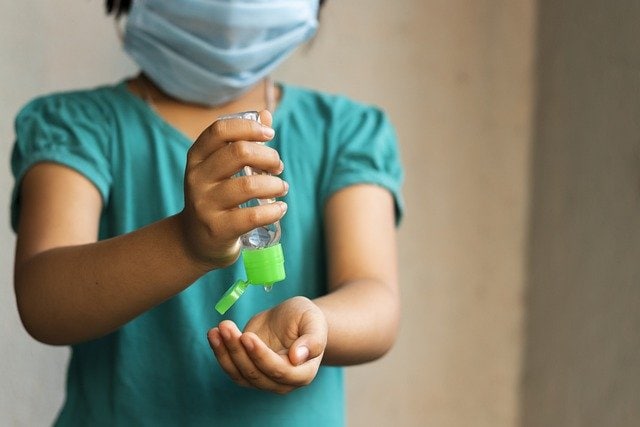
If your hands are not visibly soiled, hand sanitizer will suffice. Having visible substances on your hands reduces the effectiveness of sanitizers. If you can see anything on your hands and do not have soap and water nearby, use wipes or rubs to clean hands and reapply a second round of sanitizer.
When using alcohol-based hand sanitizers, remember these tips:
- Squeeze or squirt out enough sanitizer to ensure you cover the entire surface area, both on the fronts and backs of your hands.
- Rub your hands for 10-15 seconds, applying sanitizer all over the back of the hands, between finger tips, wrists and fingernails.
- Rub your hands until they become dry.
Do note that alcohol-based hand sanitizer can be fatal if ingested and should not be kept within reach of young children and babies.
Protecting your hands from damage
While it is of paramount importance to know how to wash hands in the COVID era, it is only one part of hand hygiene. It is as important to look after your skin because it is your biggest organ and the first form of defense against all forms of infection. Once you have properly dried your hands after washing, do the following to take care of them:
- When washing dishes or cleaning your house, use gloves to prevent damage.
- Liberally apply water-based hand creams a few times a day especially if your hands tend to be subjected to water on a frequent basis.
- During this pandemic, many people have found that their hands have become chapped and dry with frequent use of sanitizer or handwash. If your skin peels due to dryness, it will be easier for contaminants to enter your system. Use coconut oil or hand creams regularly to moisturize your hands and prevent them from peeling.
- Use gardening gloves when tending to plants to prevent soil or chemicals from becoming stuck under your nails.
- Use a nail brush if required but it is best to keep your nails clipped and short.
- If your hands frequently develop skin irritation, speak to a medical professional.
How to wash your hands in medical settings
If you have to enter any kind of medical environment – whether a doctor’s clinic, a dentist office, a testing and diagnostic centre, or a hospital, it is critical to know how to wash hands and keep them clean.
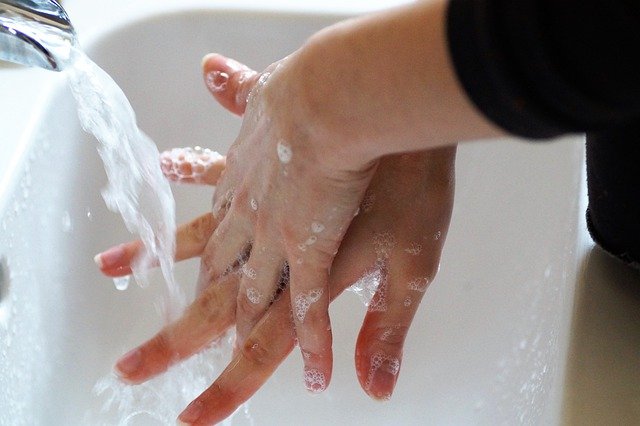
When you are fit and in reasonable health, your body can defend itself against harmful microorganisms. But if you or anyone in your family are immune-compromised in any way, infections and viruses are more common.
Do remember that you may be more vulnerable to infection if you are recovering from an illness, have undergone surgery recently or have conditions that leave your immune system weak.
If you have to enter a medical facility, carry your own bottle of hand sanitizer. Most medical centres have placed bottles of hand rubs for clients to use, but it is best if you have your own. Use it liberally and frequently while you are out. Avoid touching your face or eating anything while you are in these centres.
How to wash hands at the workplace
All hygiene policies at work should be formulated keeping in mind the hand hygiene of employees, customers and any others who may be passing through.
As far as the work environment is concerned, consider the following tips:
- Hands must be washed regularly with soap and water for a minimum of 20 seconds.
- Single-use disposable paper towels should be provided in a dispenser that prevents contamination.
- Electric hand driers may be used as substitutes for paper towels.
- Bottles of hand sanitizer with a minimum of 60% ethanol as its active ingredient should be easily available if soap and water is not accessible.
- Dispensers of liquid soap, paper towels or sanitizer should not require any handling.
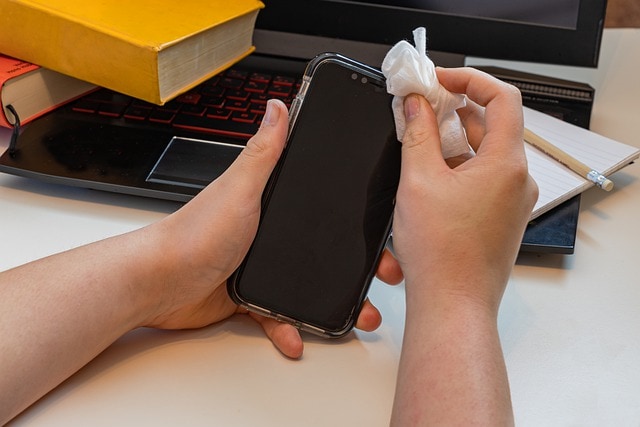
At your workplace or office, do ensure that you have cleaned your hands:
- Before and after every meal
- After visiting the toilet
- After coughing or sneezing
- When moving from one task to the other
How to dry your hands
Knowing how to wash hands is only half of the process, drying them is as vital to the entire process. The best method for drying hands is paper towels because they are more efficient than air dryers and can prevent the spread of infectious diseases like COVID-19.
Air dryers are effective only if they are high powered and dry the hands thoroughly. With damp hands, the risk of transmission is higher so do ensure that there are complete instructions provided for air dryers:
- Place infographics near the dryers to communicate the need for fully dried hands
- The entire surface area of a dryer should be disinfected regularly.
- All nearby areas such as sinks and taps should also be sanitized on a regular basis to eliminate any germs that might have been spread when hand drying.
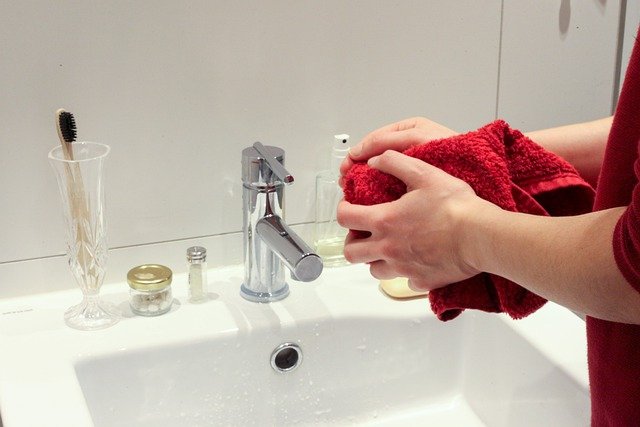
Paper towels dry hands more effectively and so you should bear the following in mind:
- Single use paper towels should be refilled on a regular basis
- Place a lined bin near the dispenser to ensure that used paper towels are disposed of in the right way. The bin must be emptied frequently.
- All waste from washrooms should be double bagged and kept in a safe zone if not being disposed of immediately. Some workplace laws may require commercial spaces to store hazardous waste for 72 hours before disposal.
When and how to wash hands
The rule of thumb when it comes to knowing how to wash your hands and when to wash them is this: Wash hands before you touch anything which should be kept clean and wash your hands after touching anything that may be dirty or contaminated. Consider washing:
- When hands look visibly soiled
- After petting animals
- Before coming into contact with a wound, rash or any form of cut (if you are changing dressings on wounds or applying creams or medicines)
- After coming into contact with wounds or rashes
- After sneezing, coughing or blowing your nose
- After visiting the toilet
- Before and after visiting a medical facility
- After coming into contact with any form of body fluids
- Before and after cooking or eating
- Before and after visiting a gym
- When in public spaces or on public transport (use hand sanitizer here)
- After handling garbage, chemicals or anything else that is dusty, soiled, or contaminated
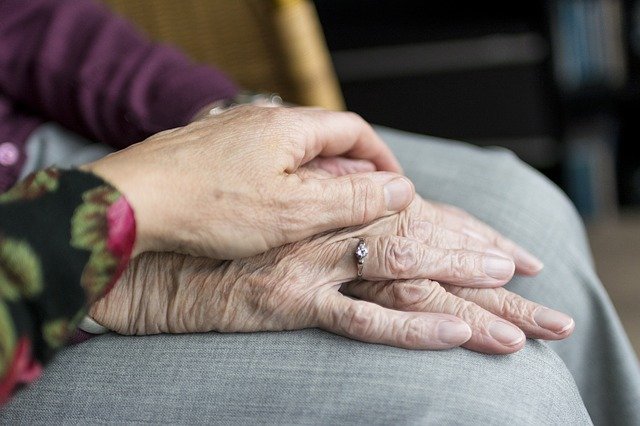
Knowing how to wash your hands can keep you and your loved ones safe and protected, even in times of a pandemic. It is a simple, affordable and easy practice to follow and should become a part of your daily routine.
If social distancing is still required where you are, here’s how to deal with FOGO (Fear of Going Out). Your fitness and wellness routines shouldn’t stop if you are staying home. Avaana can help you find a counselor online or you could consult an online fitness coach and ramp up your home workout.



